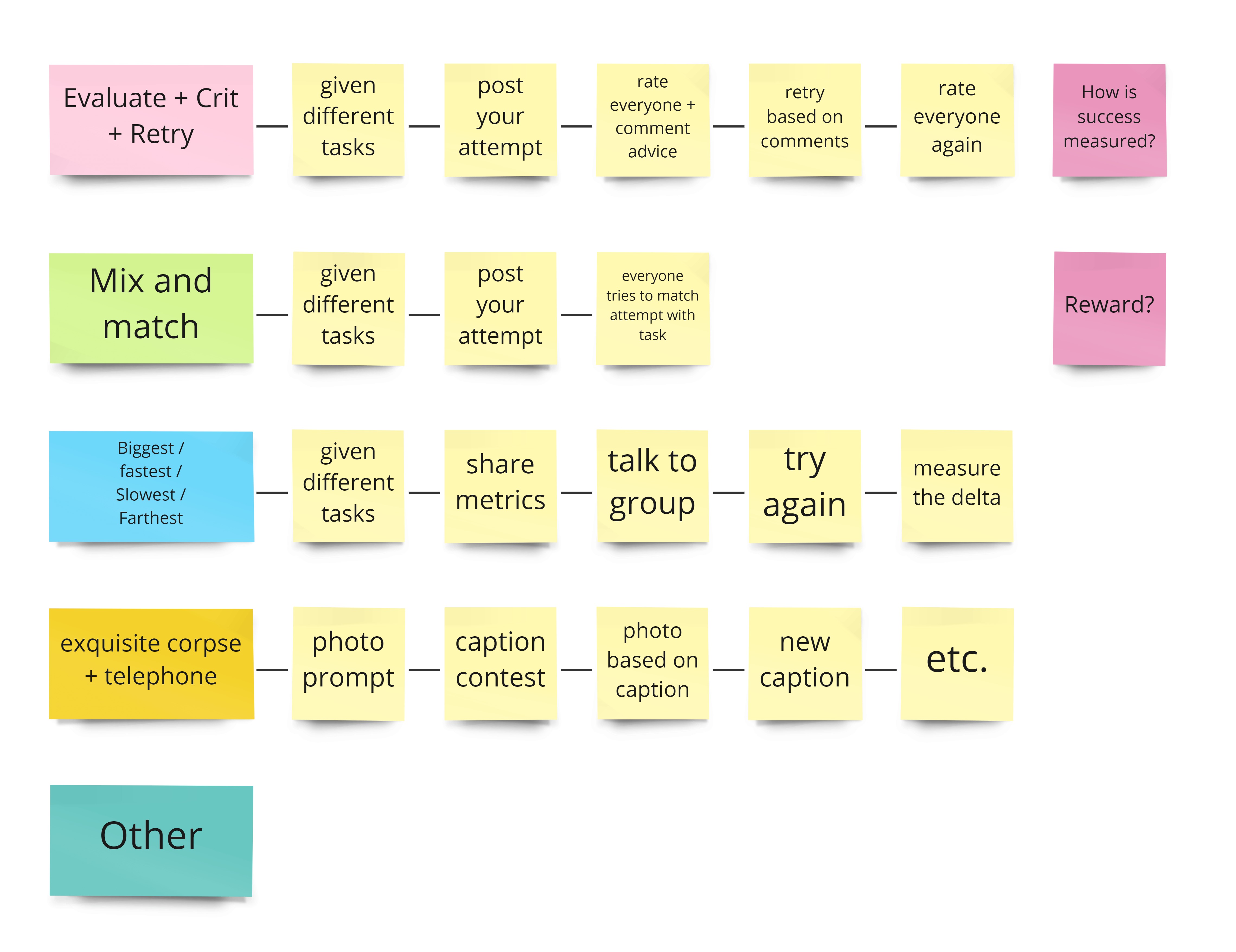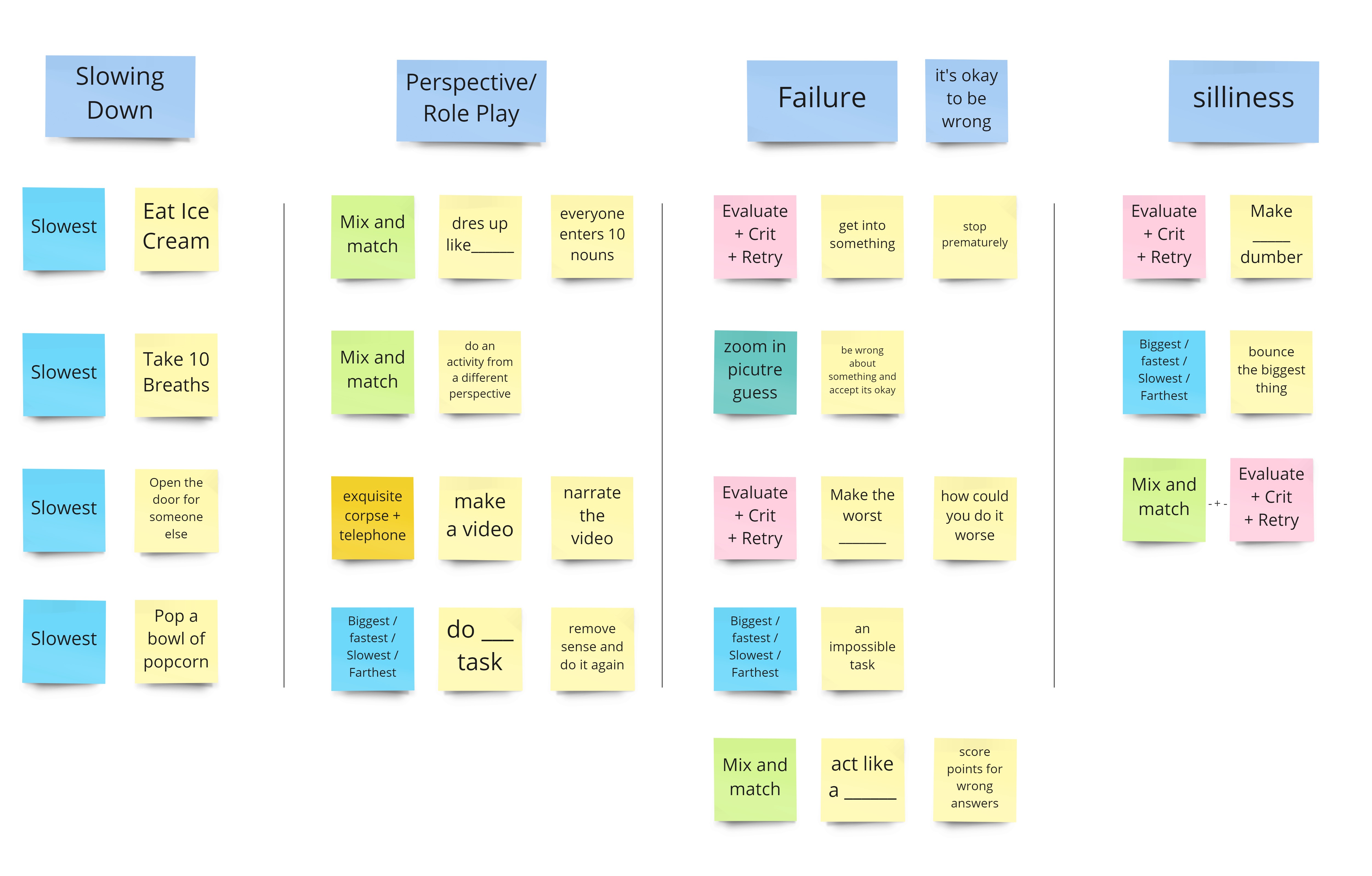Unadulterated Streak
As we grow out of adolescence, we grow out of our creativity.
By Un-adult-erating we reconnect with our creative selves.
Exploration
How might I create habitual disruptions that promote creativity
Outcome
Developing an app-based longform photo game. Prototyping, user testing, and creating promotional materials
Game Play
It's all about keeping up the streak!
Working as a team, individuals take turns taking the most (insert random group generated adjective) photo. You have 24 hours to take the first photo. But, as your streak goes up the allotted time for a turn goes down. The game ends when a team member fails to take a photo in time.
- Your content must be new, don't recycle old photos
- Gain bonuses for how quickly you complete the tasks
- Gain even larger bonuses for the quality of your submissions
Research
The research component of this project focused on creativity, play and game development through secondary source material, surveys, and market research.
Key Insights
Creativity -Creativity often has an antagonistic relationship with what we consider “adult.” Constant output isn’t linked to creativity, the desire to be original is a form of editing, and we don’t grow into creativity we get educated out of it. Children are more likely to be creative and take risks because they are less nervous about the judgment of their peers.
Play - Play builds human trust, and friendship is a shortcut to play. Play, trust, and friendship reinforce one another and decrease fear of judgment. It’s important for play to have rules, so we know how and when to play. Play and work aren’t opposites, the opposite of play is depression. In fact there are creative benefits of switching between play and serious modes.
Creating Habits - Inorder to successfully create habits it’s important to start small, make things easy, and build in rewards.
Play - Play builds human trust, and friendship is a shortcut to play. Play, trust, and friendship reinforce one another and decrease fear of judgment. It’s important for play to have rules, so we know how and when to play. Play and work aren’t opposites, the opposite of play is depression. In fact there are creative benefits of switching between play and serious modes.
Creating Habits - Inorder to successfully create habits it’s important to start small, make things easy, and build in rewards.
Development
In this phase I mapped out types of play, styles of game play, desired learning outcomes and possible actions. I then developed tasks and games based on possible learning outcomes and designed a few styles of gameplay that involved performing Mad Libs inspired tasks, group feedback, and iterating on tasks.
Styles of Game Play

Tasks for Different Learning Outcomes
